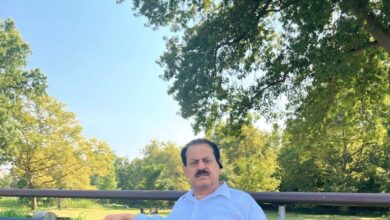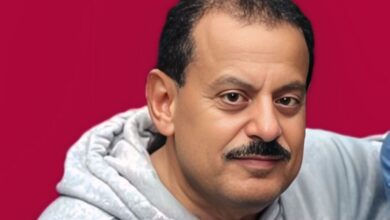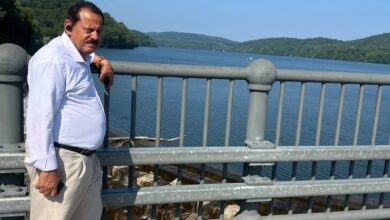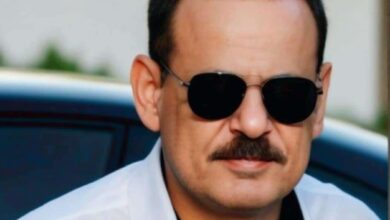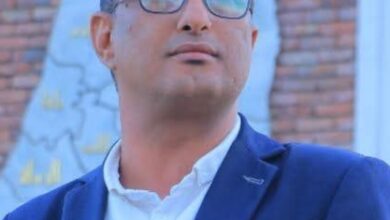Our Illnesses and Ailments
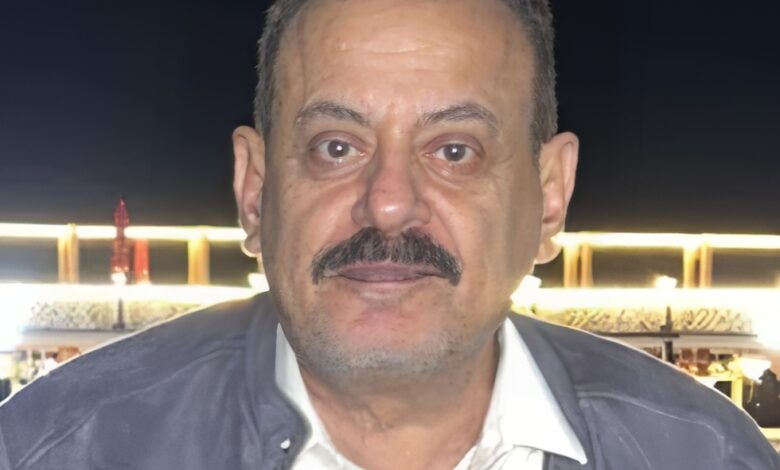
Yemeni mp
Ahmed Saif Hashed
Our villages were starkly devoid of the necessities we yearned for. There were no health clinics or medical facilities, nor laboratories to diagnose even our simplest ailments.
The notion of health awareness was foreign to us, and we had no medical guidelines to follow.
Often, we relied solely on God for our health, and our well-being frequently deteriorated, rendering us helpless against illness. The available remedies were few and limited, akin to what was rare for those with some means.
The treatments we could find in the local “stores” were just a handful of names: “Aspro,” “Aspirin,” “Abu Fas,” “Mistaletem,” “Shorbat Sana,” and “Maa Al-Ghareeb.” These were our only means to soothe our children to sleep despite their pain and hunger.
This constituted our entire pharmacy, our refuge whenever we were beset by colds, flu, fevers, headaches, or joint pain.
Cauterization, known to us as “Missam,” was employed to treat certain conditions that did not respond to standard remedies or were deemed incurable at that time.
For those unable to access a doctor or appropriate medical care, cauterization became a last resort—perhaps not the final one, as some patients preferred this method. “Missam” could be applied multiple times on a single body in the search for healing, even if it left deformities that accompanied the patients for the rest of their lives.
With cauterization, the patient faced a choice: to heal, seek alternatives, or endure, waiting for death while suffering from their ailments.
Regarding what we called “Su’far,” or jaundice, it affected a significant number of people. The treatment involved cutting one of the blood vessels under the tongue. Healing was often successful, restoring a person’s color and health; yet others suffered from multiple ailments that compounded one another, draining their strength until they faded away, either accepting their fate or resisting it.
For wounds, we used the sap from the “Abki” tree to aid in healing. Other plants and trees were also relied upon for various familiar ailments, such as “Qutbah,” which was used to break or halt the growth of kidney stones or help expel them.
Occasionally, “penicillin” powder might reach a patient through a health worker or doctor who came from afar, if the patient had the means, leading to recovery or a timely end. However, this was rare due to widespread poverty and limited resources.
Tooth extractions were performed by individuals nearby, but usually without anesthesia or expertise.
Tooth decay was treated by a local scholar who used a method he brought from Ethiopia, involving “Ersam,” a tube, and a candle.
The craft of making dentures and crowns was practiced by a man who traveled from afar, often staying for a week or less in our villages before leaving, not to return for a year or more. This man appeared to have acquired his skills through experience rather than formal education.
We encountered vaccines or immunizations only once, when one arrived at our school against smallpox. I still bear the scar on my arm to this day. We felt as though we lived in a remote place, far from a world that seemed almost beyond our imagination.
The doctor, whom my father referred to as “the wise man,” was found only in a distant area, and we sought him only when illness reached a critical point, when symptoms became severe enough to compel us to seek help. Generally, we avoided him unless circumstances permitted and the illness had taken a firm hold on us.
We often resisted our ailments or coexisted with them until they overwhelmed us, pushing us to seek a doctor who was miles away.
The two times I sought medical help in the village were to “Thabab” in the north and to a clinic in “Sha’ab” in the south, part of the People’s Democratic Republic of Yemen.
This occurred when I suddenly experienced shortness of breath in the late hours of the night, resembling asthma. In both cases, I was transported on the back of a donkey, as cars did not reach our villages back then.
In our villages, we often coexisted with our illnesses, or they coexisted with us. Once illness overwhelmed us, we would search for a remedy or a doctor, or head to the city if we had the means. Most people could not reach a doctor or a city. We lived with all our fears. Poverty and illness besieged us, taking their toll on our lives.
* * *
We ventured to the Thursday market, accompanied by my cousin Salem. We had made the decision to escape, and we successfully fled to the region of “Al-Rama” to seek refuge with some of his relatives. Our departure felt like a long-awaited humanitarian refuge.
As we traversed “Al-Atbah,” I noticed the mountains appearing to move rapidly. I rubbed my eyes, attempting to focus on the sight before me, and it indeed seemed real; the mountains were running at an astonishing speed.
I turned to Salem, who was fleeing alongside me, and asked if he saw what I saw. He confirmed that he, too, was witnessing the same extraordinary phenomenon.
The mountains surrounding us were all racing by. We conversed and agreed that what we were experiencing was reality, not mere imagination. It felt as if we had been granted a divine revelation, a profound insight into the Earth’s rotation and the movement of mountains. However, the truth was that we were both dizzy and experiencing vertigo, a result of malnutrition and our skipped breakfast.
Upon arriving in “Al-Rama,” we were met with alarm by some of the locals, who feared our families’ reactions. They graciously hosted us for an hour before hurriedly sending us back to our families.
In my childhood, I suffered from dizziness, fatigue, and a persistent loss of appetite. I endured weakness, exhaustion, and malnutrition, along with occasional severe abdominal pains, cramps, and intestinal disturbances.
Sometimes, I experienced vomiting and diarrhea, accompanied by bloating. At times, I felt an urgent need to defecate for an extended period, only to find that my stool was often minimal and mixed with mucus. We referred to this condition as “Azzah,” and we endured various other intestinal ailments and symptoms.
I appeared worn and frail, struggling with my illnesses while attempting to coexist with them. Most of these issues arose from a lack of healthy food and, prior to that, access to clean water. During the rainy seasons, particularly the heavy ones, the water we drew from the wells was often murky and carried an unpleasant odor, if it had not become outright foul. We had no alternative but to drink it.
We lived in a constant struggle for survival, where the very things that sustained us often brought illness or caused it. Fate imposed itself upon us without question, thrusting us into a life of necessity and leaving us with no alternatives; “You must endure your brother’s plight, even if he’s not a hero.”
Anemia was a constant companion in my childhood, or so I learned later. Beyond that, we were hosts to various organisms living within us against our will. I felt as if my intestines had become a settlement for numerous and diverse worms. I would see various types and species of worms in my stool; however, one particular instance brought a surprise that overwhelmed my imagination and endurance.
* * *
My father was tending to a terrace on the mountain, while my aunt, Um Abdu Fared, was nearby. I had found a spot close to them to relieve myself. As I squatted down, instead of the expected waste, I saw something emerging from my intestines through my rectum—a white creature resembling a snake. In that moment of confusion and panic, I thought to myself, “A snake is living in my belly… what is it doing, and how does it survive?!” The realization struck me that I could be at risk of being bitten at any moment.
I was engulfed by a level of turmoil that exceeded anything I could have imagined. I fought against my rising panic, my embarrassment struggling to help me endure the situation. Yet, what was happening was far beyond my comprehension.
I found myself engulfed in moments of anguish, confusion, and sheer panic. As I struggled to expel the creature, it seemed to grow longer, and my patience began to wane. The creature remained lodged, stretching and emerging relentlessly. Its tip touched the ground while still suspended from my rectum, elongating in ways I could scarcely comprehend. I imagined it to be larger than my intestines, and a wave of fear, terror, and chaos swept over me.
I endeavored to endure the situation, hoping that this strange creature would eventually emerge completely without leading to what felt like an impending scandal. If I screamed and others learned of my plight, it might haunt me for the rest of my life, leaving no avenue for escape. I wrestled internally, battling my embarrassment as the creature continued to dangle, refusing to resolve, while I remained clueless about its ultimate fate.
My patience wore thin, and the circumstances surpassed my capacity to cope and my imagination. As a child still naïve to such experiences, I had no comprehension of how to manage something like this, regardless of whether it happened to someone older or younger. I had never faced anything remotely similar, let alone of such overwhelming magnitude, which felt far too great for me to bear. The ordeal was harsh, and those bewildering moments were utterly terrifying for a child like me.
I erupted in a panic that overtook my voice, screaming frantically, “Snake! Snake! Snake!” Terror coursed through me, from the crown of my head to the tips of my toes, my cries echoing as I ran desperately. My aunt rushed toward me, eager to understand what was happening. Upon hearing my story, she quickly pulled the creature out, exclaiming, “Qalalit… Qalalit.” That word was unfamiliar to me; it was the first time I had ever heard it. From her calm demeanor as she reassured me, it was clear that she was familiar with it, if not well-known. She continued to soothe my panic and alleviate the overwhelming embarrassment that tightened its grip on me, intensifying with each moment.
I caught a glimpse of the worm from my height, writhing on the ground like a snake, perhaps breathing or making slight movements. My terror subsided, yet my shame grew to unprecedented levels. It felt as if my embarrassment was consuming me entirely.
In that moment, I wished the ground would swallow me whole so that no one could see me. I understood that a little patience was necessary to rid myself of the creature that had instilled such fear in me, after which I could inquire about it and grasp everything with a simple question.
What had transpired exceeded my age and experience. It was the first time I had found myself in such an embarrassing predicament, and I felt as though the mountain itself had witnessed my ordeal, observing me with its own eyes. Meanwhile, my father, aware of what had happened, laughed heartily, deepening my humiliation and discomfort. The panic I had felt transformed into moments of shame that resembled a scandal.
Fortunately, my peers remained unaware of my story; had they known, it would have surely become fodder for gossip, potentially driving me to contemplate suicide or fleeing far from my village to live in isolation, away from the memories of what I had experienced. However, as I matured and gained perspective, the incident began to seem quite ordinary to me. In fact, I discovered that I could share it, write about it, and even laugh at it. More importantly, I realized that the depth of awareness and its evolution could reshape our perceptions of many things, including the “shame” we had always endured.
Those diverse worms, both small and large, feasted on my food and the remnants within my stomach. They shared my right to live and exist, and I felt as though they were consuming me without my awareness.
As I grew older and began to read, I discovered that the “snake” I had imagined was, in fact, an “ascariasis” worm, commonly known as the “belly snake.” This creature measures approximately 27 centimeters in length and has a lifespan that ranges from two to six years.
However, the “ascariasis” worms of today are not the same as those I encountered in my early childhood. They resemble beings that are more severe and vicious—hungrier and far more harmful. They swell with corruption and plunder, having seized the sustenance of our people, who now suffer from hunger and die of starvation. The homeland itself can no longer provide for them; they have corrupted our lives and devoured the nation from beginning to end, wishing they could taint the entire universe.
* * *


